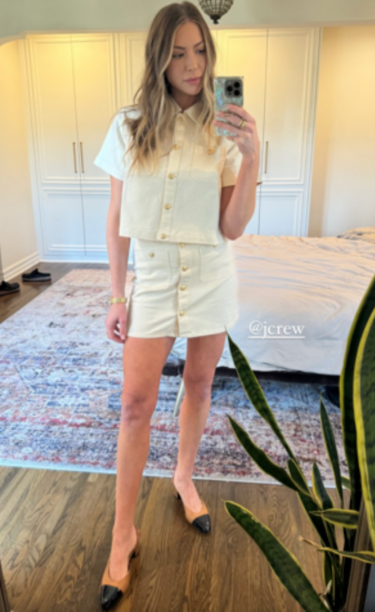10 Steps to Overcome Shame After 60

Do you know what the #1 obstacle is to having your dreams, desires, and goals fulfilled after 60?
The stigma of shame and blame.
Without being aware of how shame and blame influence your choices in life, it is common to feel perpetually stuck in a revolving door of disappointment, disempowerment, and distressing circumstances.
These distressing emotions not only prevent you from taking inspired action on your innermost desires, but they can also get in the way of thinking there is a way out of such misery.
Having experienced and overcome intense degrees of shame and blame in my own life, I can confidently say that as dark as those moments were, there is always a light at the end of the tunnel.
That light is you.
This is the seventh of an eight-part article and video series on Being Enough After 60, that will focus on illuminating the light within you by overcoming shame.
Find all articles in this series:
Part 1: TOP 10 BENEFITS OF SELF-ESTEEM AFTER 60
Part 2: 10 STEPS TO BUILD YOUR SELF-ESTEEM AFTER 60
Part 3: 7 CHALLENGES OF BEING ENOUGH AFTER 60
Part 4: 10 STEPS TO DISMANTLE AGEISM
Part 5: LOVING YOUR BODY AFTER 60
Part 6: OPENING YOURSELF UP TO TRY NEW THINGS
What Is Shame and Blame?
Shame and blame are introduced to most people through traumatic experiences as a child.
Creating a fear-based reality that is reflected back to you in the outer world, the stigma of shame and blame often turns you against yourself, establishing a foundation for low self-esteem and unworthiness.
When your self-worth is attacked and diminished by others, without the proper help, you become unconsciously conditioned to distrust your inner, authentic self as an adult.
The most effective way to overcome the intensity of shame and blame is by repeated acts of self-love. How do you do this? By learning to trust the voice of your true, authentic self.
The Voice of Your Authentic Self
For any of us who have suffered through shame and blame, we unknowingly develop a lack of trust in our authentic voice. In fact, we have likely relied on the guidance of our inner critic for so long that we mistook it for our own true, authentic self.
By having the voice of your true self disrespected and discounted as a child, you may have grown into an adult not feeling empowered to speak up and be heard, seen, and valued when and where it matters most.
A lack of trust in your inner, authentic voice stems from hopeless experiences as a child in the face of being shamed and blamed into submissive silence by authority figures.
But as an adult, when you are far removed from those early childhood challenges, how do you learn to trust your authentic voice and overcome these traumatic effects?
10 Steps to Overcome Shame and Blame
Overcoming the effects of shame and blame is a life-transformative journey that fosters self-love, self-compassion, and emotional healing.
Here are 10 steps that many women over 60, including myself, have used to navigate these emotions and move towards greater well-being:
Self-Awareness
Recognize when shame and blame arise. Identify triggers and situations that lead to these feelings and create pattern interruptions that mitigate their influence and effects.
Challenge Your Negative Self-Talk
Pay attention to internal dialogue. Counter self-blame and self-criticism with loving, kind, and compassionate self-talk.
Practice Self-Love and Self-Compassion
Treat yourself with the same love, kindness and understanding you would offer to a loved one in a similar situation.
Understand What Triggers You
Explore the origins for feeling shame or blame. Uncover past experiences or beliefs that contribute to these emotions. This is not to relive the trauma but to finally look at it through the eyes of love and maturity.
Reframe Limiting Beliefs
Challenge distorted, limiting beliefs that fuel the fires of shame or blame. Consider more emotionally balanced and empowering beliefs.
Your Inner Child
Connecting with your inner child nullifies the effects of shame and blame. It is the pathway to self-love and releases your authentic voice from years of being constricted through fear, anxiety, and self-doubt.
Release Perfectionism
Embrace the idea that nobody is perfect. Allow yourself to make mistakes and learn from them without judgment.
Forgive Yourself
Acknowledge past mistakes or regrets with the understanding that they helped you grow into the beautiful person you are today. Practicing self-forgiveness towards yourself and others plays a huge role in this.
Set Boundaries
Establish healthy boundaries to protect yourself from blame or shame imposed by others and especially your own self. Surround yourself with supportive individuals.
Seek Professional Help
If shame and blame are deeply rooted and affecting your well-being, consider seeking therapy or counseling to work through these emotions.
Overcoming shame and blame is a gradual process. Be patient with yourself and celebrate the progress you make along the way.
As you apply these 10 steps, in addition to others you come up with, you can cultivate emotional resilience, improve your self-worth, and foster a healthier, more loving relationship with yourself.
I invite you to join me in the video where I will share five additional steps you can take to overcome shame and blame. I will also guide you through three inspiring journal prompts and ten empowering affirmations to help you integrate what you are learning.
Let’s Have a Conversation:
Have there been moments in your life when you suffered from shame and blame? How did you overcome this pattern?
Read More






















































